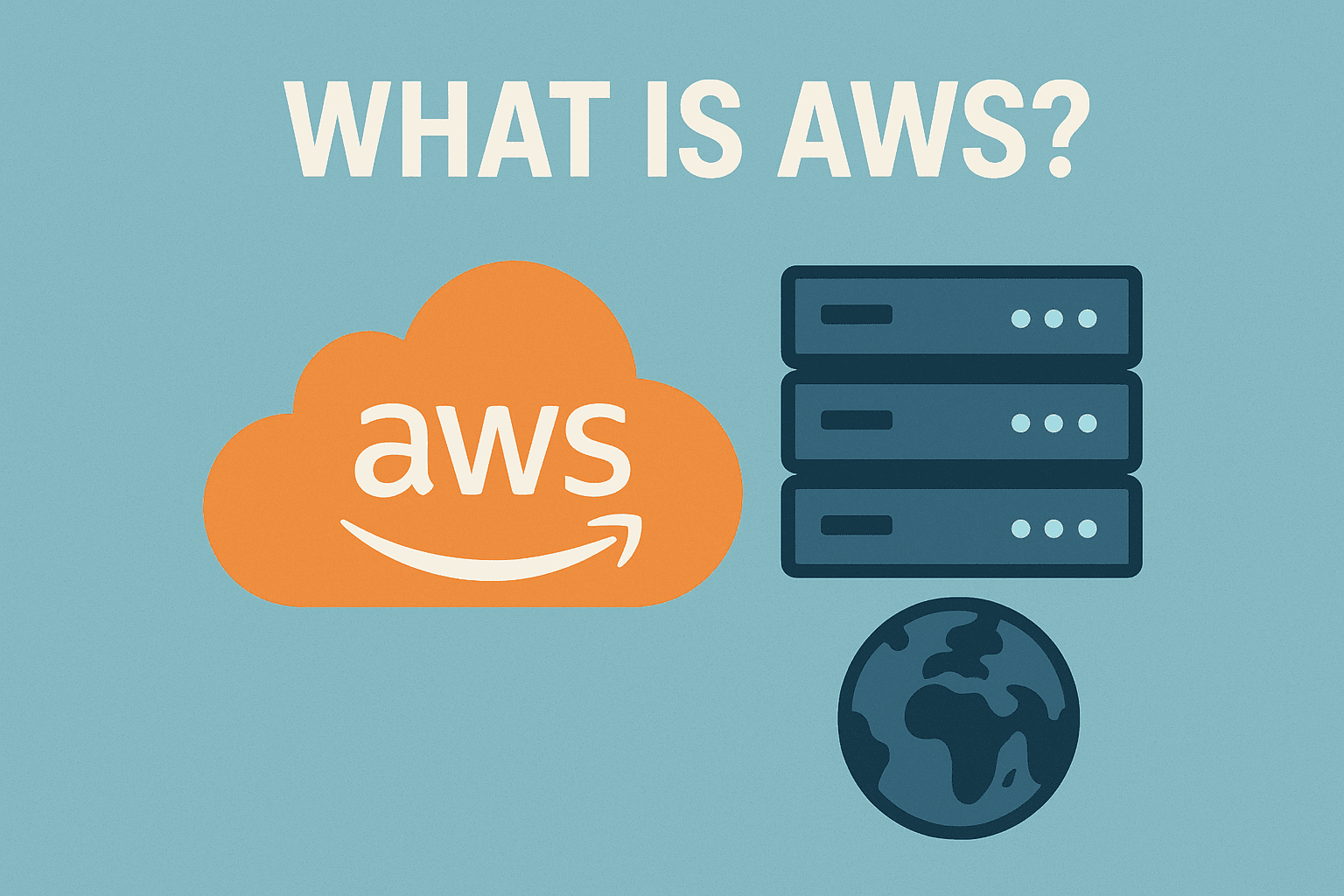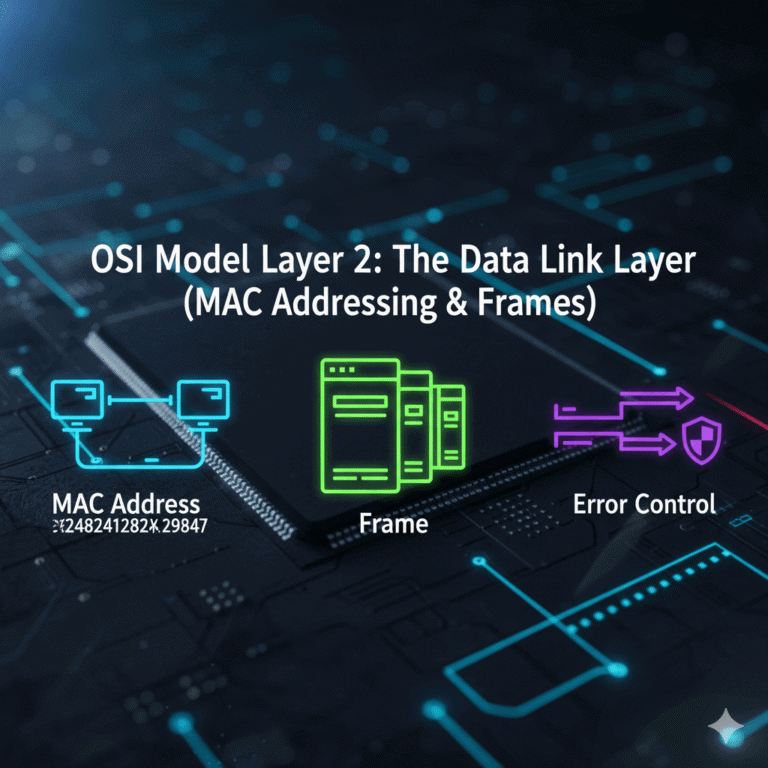When you stream a movie on Netflix, browse photos on Reddit, or use countless other major websites and apps, you are using Amazon Web Services (AWS). It is the massive, invisible engine that powers a huge portion of the modern internet.
For anyone new to tech, understanding AWS is a crucial first step into the world of cloud computing. This guide will break down what AWS is in simple terms, its key advantages and disadvantages, and introduce the fundamental services every beginner should know.
If you’re new to the cloud, be sure to read our foundational guide, What is Cloud Computing?, first.
What is Amazon Web Services (AWS)?
Amazon Web Services (AWS) is a comprehensive and secure cloud computing platform provided by Amazon. It offers over 200 fully featured services from data centers all over the world.
Think of it like a massive, global, digital utility company. Instead of building your own power plant, you just pay for the electricity you use. With AWS, instead of buying and managing your own physical servers in a data center, you can rent computing power, storage, and databases from them on a pay-as-you-go basis.
Advantages and Disadvantages of AWS
Like any technology, AWS has powerful benefits but also some challenges, especially for beginners.
Advantages of AWS
- Flexibility and Scalability: With over 200 services, you can build almost anything you can imagine. You can easily scale your resources up or down to meet demand, adding more server power in minutes if your site gets a surge of traffic.
- Cost-Effectiveness (Pay-as-you-go): The pay-as-you-go model eliminates the need for large, upfront investments in hardware. You only pay for the exact computing resources you consume, which is often much cheaper than maintaining your own infrastructure.
- Reliability & Security: AWS has a massive global infrastructure, making it incredibly reliable. They also invest billions in security, often providing a more secure environment than what most companies could build on their own.
- Market Leader: As the most popular cloud provider, AWS has the largest community, the most tutorials, and the most job opportunities, making it a great platform to learn.
Disadvantages of AWS
- Complexity (The Paradox of Choice): The sheer number of services (200+) can be overwhelming for a beginner. It can be difficult to know which service is the right one for a simple task.
- Difficult Cost Management: The pay-as-you-go model is a benefit, but it can also be a risk. If you misconfigure a service or get unexpected traffic, you can receive a surprisingly large bill. Cost management requires careful monitoring.
- Technical Expertise Required: Using AWS effectively requires some foundational knowledge of networking, security, and system administration. There is a steeper learning curve.
A Quick Tour of Core AWS Services for Beginners
You don’t need to know all 200+ services to get started. Most projects are built using a handful of foundational “building blocks.” Here are the most important ones:
- EC2 (Elastic Compute Cloud): This is the most fundamental service. Think of EC2 instances as the virtual servers or “computers” that you rent in the cloud. This is where you run your applications, websites, and services.
- S3 (Simple Storage Service): Think of S3 as a nearly infinite digital hard drive in the cloud. It is an “object storage” service used for storing everything from website images and videos to application data and backups. It’s known for being incredibly durable and low-cost.
- RDS (Relational Database Service): This service makes it easy to set up, operate, and scale a relational database (like MySQL, PostgreSQL, or MariaDB) in the cloud. RDS handles all the complicated and time-consuming maintenance tasks like patching, backups, and recovery for you.
- VPC (Virtual Private Cloud): This is the networking component. A VPC is your own private, isolated section of the AWS cloud. It’s where you launch your resources (like EC2 instances and RDS databases) and have complete control over who has access to them, creating a secure virtual network.
Conclusion: The Starting Point for Your Cloud Journey
AWS is the market leader for a reason: it’s powerful, flexible, and reliable. While it has a steeper learning curve, understanding its core services is a valuable skill for anyone looking to start a career in cloud computing or DevOps.
Now that you understand the market leader, how does its biggest competitor stack up? In our next guide, we’ll explore What is Microsoft Azure?
Ready to get your hands dirty? Subscribe to CyberTerminal to stay updated!
[INSERT_ELEMENTOR id=”1346″]




